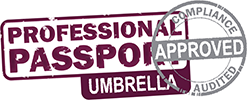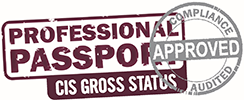Category: Latest News
New guidelines introduced to get UK safely back to work
The Government has published new guidelines to make workplaces as safe as possible and give people confidence in going back to work.
The guidelines, developed with input from over 250 stakeholders including Public Health England and the Health and Safety Executive, have been introduced in a bid to get the economy back up and running, protect jobs and restore vital public services.
The key points from the new guidance include:
- Work from home if you can
- Carry out a COVID-19 risk assessment
- Maintain 2 metres social distancing where possible – where this isn’t possible, transmission risk should be managed
- Reinforcing cleaning processes
Business Secretary Alok Sharma said:
“This guidance provides a framework to get the UK back to work in a way that is safe for everyone.”
“These are practical steps to enable employers to identify risks that COVID-19 creates and to take pragmatic measures to mitigate them.”
“And as we are able to reopen new sectors of the economy, we will continue our collaborative approach working with a wide range of stakeholders, to provide guidance for additional workplaces.”
Read MoreHMRC to begin contacting self-employed who may be eligible for support
It has been announced that HMRC will today start contacting those who may be eligible for the government’s Self Employment Income Support Scheme.
Those who are eligible will be able to claim a taxable grant worth 80% of their average trading profits up to a maximum amount of £7,500. This will be paid in a single instalment.
HMRC have also asked those who believe they may be entitled to this scheme to go online and check their eligibility. To do this, you will need to have your Unique Taxpayer Reference (UTR), National Insurance number and up to date details in the Government Gateway account.
Once the check has been carried out, those eligible will be given a date when they can submit their claim. Once submitted, the money should be paid into the nominated bank account within six working days. This service will not open until 13th May, which is ahead of the original schedule.
The scheme is designed to help millions of self-employed workers in a wide variety of industries who have been affected by the coronavirus pandemic.
To find out if you are eligible, or for more information, please visit: Self-Employed Invited to Get Ready to Make Their Claims For Coronavirus Covid-19 Support
Read MoreCoronavirus job retention scheme goes live
On the 20 April 2020 the Government’s Coronavirus Job Retention Scheme went live for applications – 10 days ahead of schedule. The scheme allows businesses to furlough their employees, with the government paying 80% of their wages, capped at £2,500 a month per worker.
Chancellor of the Exchequer Rishi Sunak said:
“Our unprecedented job retention scheme will protect millions of jobs across the country and is now up and running.
“It’s vital that our economy gets up and running again as soon as it’s safe – and this scheme will allow that to happen.”
Last week the Chancellor announced the scheme will be extended for a further month until the end of June, to reflect continuing Covid-19 lockdown measures.
The Job Retention Scheme is part of a package of measures announced by the Chancellor to support the country through the coronavirus pandemic. He has already supported employers with a £30bn injection of cash by deferring VAT payments for the next quarter, has launched a scheme for the self-employed, loans for businesses and a rise in Universal Credit.
To learn more about the Coronavirus Job Retention Scheme, visit the Government’s own website.
Read MoreChancellor extends furlough scheme to end of June
On the 17 April 2020, the Coronavirus Job Retention Scheme extended by one month to reflect continuing social distancing measures.
- move will allow firms from across UK to continue to protect millions of jobs
- scheme will continue to be monitored to ensure people and businesses can get back to work as soon as it’s safe to do so to drive UK economic recovery
The government’s unprecedented furlough scheme that is keeping millions of people in jobs will be extended for a further month, the Chancellor confirmed today.
Following on from yesterday’s announcement to keep the social distancing measures in place, Rishi Sunak said the Coronavirus Job Retention Scheme (CJRS) would now be open until the end of June – providing businesses with the certainty they need.
The scheme, which allows firms to furlough employees with the government paying cash grants of 80% of their wages up to a maximum of £2,500, was originally open for three months and backdated from the 1 March to the end of May.
However, the Chancellor said he would keep the scheme under review and extend it if necessary.
Chancellor of the Exchequer, Rishi Sunak, said:
“We’ve taken unprecedented action to support jobs and businesses through this period of uncertainty, including the UK-wide Job Retention Scheme. With the extension of the coronavirus lockdown measures yesterday, it is the right decision to extend the furlough scheme for a month to the end of June to provide clarity.
“It is vital for people’s livelihoods that the UK economy gets up and running again when it is safe to do so, and I will continue to review the scheme, so it is supporting our recovery.”
To read more about this topic, please visit the Government’s own website.
Read MoreClaiming tax relief on professional body fees or subscriptions
HMRC has updated its list of professional bodies that you can use to see if you can claim tax relief on your fees or subscriptions.
You can claim tax relief on fees or subscriptions for some professional organisations if:
- HMRC has approved them
- being a member of the organisation is relevant to your job
If the organisation has been HMRC approved they can tell you how much tax you can claim back.
You cannot claim tax back on life membership subscriptions, or for fees or subscriptions you:
- do not need to do your job
- have not paid yourself
- have paid to professional organisations that are not approved by HMRC
If your organisation is shown on the list you can get tax relief by either:
- making a claim by post on a form P87
- entering the amount you can claim in box 19 of the SA102 page if you need to send us a Self Assessment tax return
If you’re a professional organisation, you can complete form P356 to apply to be added to the approved list for fees and subscriptions.
Link to original article: HMRC updates list of Professional bodies that you can use to see if you can claim tax relief
Read MoreCan you claim a grant through the Self-Employment Income Support Scheme?
If you’re self-employed or a member of a partnership and have been adversely affected by coronavirus (COVID-19) find out if you can use this scheme to claim a grant.
The scheme will allow you to claim a taxable grant of 80% of your average monthly trading profits, paid out in a single instalment covering 3 months, and capped at £7,500 altogether. This is a temporary scheme, but it may be extended.
If you receive the grant you can continue to work, start a new trade or take on other employment including voluntary work, or duties as an armed forces reservist.
The grant does not need to be repaid but will be subject to Income Tax and self-employed National Insurance.
There is other support available if you’re not eligible for the grant.
HMRC will work out if you’re eligible and how much grant you may get. But you can follow these steps to help you understand how we will do this and what you can do now.
Who can claim
You can claim if you’re a self-employed individual or a member of a partnership and all of the following apply:
- you traded in the tax year 2018 to 2019 and submitted your Self Assessment tax return on or before 23 April 2020 for that year
- you traded in the tax year 2019 to 2020
- you intend to continue to trade in the tax year 2020 to 2021
- you carry on a trade which has been adversely affected by coronavirus
Your business could be adversely affected by coronavirus if, for example:
- you’re unable to work because you:
- are shielding
- are self-isolating
- are on sick leave because of coronavirus
- have caring responsibilities because of coronavirus
- you’ve had to scale down or temporarily stop trading because:
- your supply chain has been interrupted
- you have fewer or no customers or clients
- your staff are unable to come in to work
You should not claim the grant if you’re a limited company or operating a trade through a trust.
To work out your eligibility we will first look at your 2018 to 2019 Self Assessment tax return. Your trading profits must be no more than £50,000 and at least equal to your non-trading income.
If you’re not eligible based on the 2018 to 2019 Self Assessment tax return, we will then look at the tax years 2016 to 2017, 2017 to 2018, and 2018 to 2019.
Find out how we will work out your eligibility including if we have to use other years.
Grants under the Self-Employment Income Support Scheme are not counted as ‘access to public funds’, and you can claim the grant on all categories of work visa.
Link to original article: Check if you can claim a grant through the Self-Employment Income Support Scheme
Read MoreChanges to off payroll working rules
Changes to the Finance Bill introduced in May 2020 included the Government’s proposed amendments to off-payroll working. These changes were due to come into effect from the 6th April 2020, however were postponed until 2021 due to the coronavirus pandemic.
The off-payroll working rules, otherwise known as IR35, are designed to ensure people working in a similar way pay similar amounts of income and National Insurance Contributions.
This means that a person working through their own personal service company (PSC) will pay around about the same tax and NI as someone who is doing the same job but is classed as being directly employed.
HMRC have stated that these new rules will come into effect on 6th April 2021 and will apply to all payments made for services provided on or after this date.
Some of the changes include:
- A new requirement that the end client must either be a UK resident or have a UK permanent establishment for the new regime to apply
- Contractors working for a medium, large or third sector organisation will have their employment status decided by the client. If necessary, a ‘Status Determination Statement’ will be provided, which explains the decision and the reasons behind it. The client will be responsible for deducting income tax and NIC’s for contractors.
- Contractors working for a small business or small third sector organisation will remain responsible for determining their own employment status and will also be responsible accounting and paying any relevant income tax and NIC’s.
- Contractors are not all self employed – employment status is decided for them based on terms and conditions of the engagement and actual working practices. These off-payroll working rules do not apply to self employed.
- Clients can not apply a ‘blanket’ rule across all contractors.
For more information, please follow this link – Off Payroll Working Rules.
Read MoreOff-payroll working rules forms postponed until 2021
Implementation of reforms to off-payroll working rules delayed for 12 months.
- reforms will now come in on 6 April 2021 as part of response to Covid-19
- part of a coordinated action by government to support businesses and individuals
Reforms to off-payroll working rules have been delayed by 12 months as part of the government’s Covid-19 economic response package.
The rules, which ensure two people sitting side by side doing the same work for the same employer are taxed in the same way, will now come into effect on 6 April 2021 instead of 6 April this year.
Financial Secretary to the Treasury Jesse Norman said:
“We will do whatever it takes to support the British economy through Covid-19.
“That is why, as well as the current support measures we have announced, we have delayed the off-payroll working reforms to April 2021.”
Off-payroll working rules, known as IR35, were introduced in 2000 to ensure that someone working like an employee, but through their own limited company, pays broadly the same tax as someone employed directly.
The reforms, announced in the 2018 Budget, are designed to tackle non-compliance with the off-payroll working rules. The reforms make medium and large organisations in the private and third sectors responsible for determining the tax status of contractors and ensuring that the right employment taxes are paid. The reforms have previously been implemented in the public sector.
The government continues to believe that it is right to address the fundamental unfairness of non-compliance with the existing off-payroll working rules, however the government also recognises that the reforms would be a significant change for both businesses and contractors. Delaying means changes will not need to be implemented until next year.
The new introduction date will be legislated in the upcoming Finance Bill.
Link to original article: Off- payroll working rules reforms postponed until 2021
Read MoreScottish Income Tax rates and bands for 2020-2021
The Scotland Act 2016 provides the Scottish Parliament with the power to set all income tax rates and bands that will apply to Scottish taxpayers’ Non-Savings, Non-Dividend (NSND) income for the tax year 2020 to 2021. This excludes setting the Personal Allowance, which remains reserved and is set by the UK Government in the UK Budget.
While the Scottish Parliament has the power to set the Scottish Income Tax rates and bands, HMRC will continue to be responsible for its collection and management. Therefore, Scottish Income Tax remains part of the existing UK income tax system and is not a fully devolved tax.
How Scottish Income Tax works
The income tax rates and bands payable by Scottish taxpayers will be those set by the Scottish Parliament. Receipts from Scottish Income Tax will be collected by HMRC and paid to the Scottish Government (via HM Treasury).
Scottish rates and bands for 2020 to 2021
On 4 March 2020 the Scottish Parliament set the following income tax rates and bands for 2020 to 2021.
- Over £12,500* to £14,585 – Starter Rate – 19%
- Over £14,585 to £25,158 – Scottish Basic Rate – 20%
- Over £25,158 to £43,430 – Intermediate Rate – 21%
- Over £43,430 to £150,000** – Higher Rate – 41%
- Over £150.000*** – Top Rate – 46%
* assumes individuals are in receipt of the Standard UK Personal Allowance.
** those earning more than £100,000 will see their Personal Allowance reduced by £1 for every £2 earned over £100,000
Link to original article: https://www.gov.scot/publications/scottish-income-tax-2020-2021/
Read MoreSick pay from day one for those affected by coronavirus
On the 4 March 2020, the Prime Minister announced that Statutory Sick Pay will be made available from day one when self-isolating, instead of day four. The move will be included in emergency legislation to deal with coronavirus.
Updating Parliament on the Government’s response, Prime Minister Boris Johnson told MPs:
“I can today announce that the Health Secretary will bring forward, as part of our emergency legislation measures, to allow the payment of Statutory Sick Pay from the very first day you are sick instead of four days under the current rules.
“No one should be penalised for doing the right thing.”
Explaining the rationale for the measure, the Prime Minister had earlier said:
“We are not at the point yet where we are asking large numbers of people to self-isolate, but that may of course come if large numbers have the symptoms.
If they stay at home, they are helping to protect all of us by preventing the spread of the virus.
The change will be a temporary measure to respond to the outbreak and will lapse when it is no longer required.
Statutory Sick Pay is paid by employers, who will know the reason their staff are giving for not being at work and already have some discretion to accept different forms of evidence as proof of sickness.
There is a range of support in place for those who do not receive Statutory Sick Pay, including Universal Credit and contributory Employment and Support Allowance. The move will be included in emergency legislation to deal with coronavirus.”
Further information is available on the Government’s own website
Read More



